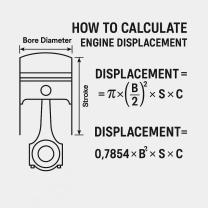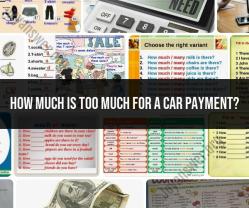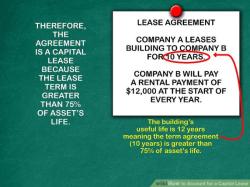How soon after purchase can you refinance a car?
The timing for when you can refinance a car after purchase can vary depending on several factors, including the terms of your existing auto loan, your creditworthiness, and the policies of the lender you choose for refinancing. Here are some general guidelines:
Typical Waiting Period: There is no specific waiting period required for refinancing a car after purchase. In many cases, you can start the refinancing process shortly after taking out the original auto loan.
Immediate Refinancing: Some people choose to refinance their car loans soon after purchase, especially if they have a strong credit history and can secure a better interest rate. However, it's important to confirm with your current lender that there are no prepayment penalties or restrictions on early loan payoff.
Credit and Loan Terms: To qualify for a lower interest rate when refinancing, it may be beneficial to wait until you have improved your credit score or until market interest rates have decreased. Generally, lenders offer better rates to borrowers with good credit.
Loan-to-Value (LTV) Ratio: Your LTV ratio, which compares the loan amount to the car's value, can affect your ability to refinance. Lenders often have specific requirements for the LTV ratio, so you might need to wait until you've paid down some of the principal on your current loan.
Loan Age: The age of your current car loan can also be a factor. Some lenders may have minimum loan age requirements for refinancing.
Repayment History: Consistently making on-time payments on your current auto loan can strengthen your credit profile and improve your chances of securing a better refinancing deal.
Compare Offers: It's a good practice to shop around and compare offers from different lenders to find the best refinancing terms. This can take some time, so you should start the process early if you're considering refinancing.
Refinancing Goals: Consider your reasons for refinancing. If you want to lower your monthly payments, you might refinance sooner. If you want to pay off the loan more quickly, you may wait until you're in a better financial position.
Before refinancing, review your existing loan agreement and discuss your plans with your current lender to understand any potential penalties or fees for early repayment. Additionally, research and gather offers from multiple lenders to determine which one provides the most favorable terms based on your financial situation.
Keep in mind that the specifics of when and how you can refinance your car may vary depending on your individual circumstances and the lending institutions you're working with.
You can refinance a car loan at any time after you purchase the car. However, there are some factors to consider that may affect the timing of your refinance.
Factors and Considerations Affecting Refinance Timing
Several factors can influence when it's best to refinance a car loan:
Interest Rates: If interest rates have fallen significantly since you bought your car, refinancing could save you money on monthly payments and overall interest charges.
Loan Terms: If you initially secured a loan with less favorable terms, such as a high interest rate or a shorter loan term, refinancing could extend your loan term, lower your monthly payments, or both.
Credit Score Improvement: If your credit score has improved since you bought your car, you may qualify for a lower interest rate when refinancing.
Equity: If you've made significant payments towards your car loan, you may have built up equity, making it easier to refinance and potentially get a better interest rate.
Advantages of Refinancing Shortly After Purchase
Refinancing shortly after purchasing a car can offer certain advantages:
Potentially lower interest rates: If rates have fallen, you may secure a lower interest rate, reducing your overall loan costs.
Better loan terms: You may be able to negotiate better loan terms, such as a longer loan term or lower monthly payments, if you refinance early.
Improved credit score impact: Refinancing can demonstrate responsible financial management and potentially improve your credit score.
Steps in the Car Loan Refinancing Process
The car loan refinancing process typically involves the following steps:
Shop around for lenders: Compare interest rates and terms from different lenders to find the best deal.
Gather financial documents: Prepare documentation like your credit report, proof of income, and current car loan information.
Apply for refinancing: Submit an application with your chosen lender, providing the required documentation.
Undergo a credit check: The lender will review your creditworthiness, and you may need to provide additional verification if needed.
Appraisal and approval: The lender may appraise your car to determine its value and provide a final approval decision.
Payoff old loan: Once approved, the lender will pay off your existing car loan, and you'll begin making payments to the new loan.
Considerations for Car Buyers Exploring Refinancing
Before refinancing a car loan, consider these factors:
Refinancing fees: Check for any associated fees, such as application fees, origination fees, or prepayment penalties.
Impact on warranty or insurance: Refinancing may affect your car's warranty or insurance coverage.
Long-term financial implications: Consider the overall financial impact, including the new loan term, interest rate, and total loan costs.
Early payment penalties: Be aware of any prepayment penalties if you plan to pay off the loan early.
Credit score impact: Refinancing can affect your credit score, so consider the timing and potential impact on your credit history.
It's always advisable to carefully evaluate your options and consult with a financial advisor if you have any doubts or questions about refinancing your car loan.












